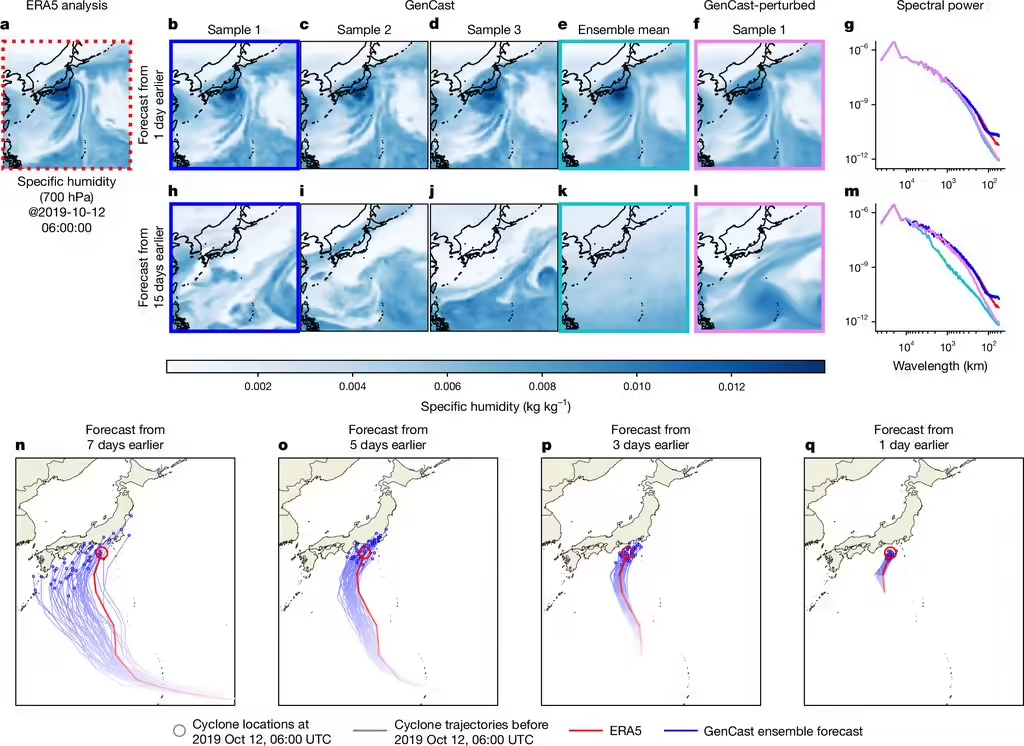Google The DeepMind team released a blog post on December 4, launching a new AI weather model GenCast,It provides faster and more accurate weather forecasts up to 15 days in advance, surpassing the European Center for Medium-Range Weather Forecasts (ECMWF) ENS system.

Project Background
Weather affects us all, shaping our decisions, our safety and our way of life.
Note: As climate change leads to more extreme weather events, accurate and reliable forecasts are more important than ever. However, weather cannot be perfectly predicted and forecasts are especially uncertain days out.
Since perfect weather forecasting is impossible, scientists and weather agencies use probabilistic ensemble forecasting, where models predict a range of possible weather scenarios.
Such ensemble forecasts are more useful than relying on a single forecast, providing decision makers with more comprehensive information about the weather conditions that are likely to occur in the coming days and weeks and the likelihood of each scenario.
GenCast model
Existing weather models are built on top of deterministic weather models that provide only a single best estimate of future weather, whereas the GenCast forecast ensemble contains 50 or more forecasts, each representing one possible weather trajectory.
GenCast is a diffusion model, a generative AI model that underpins the latest rapid developments in image, video, and music generation. However, GenCast is different from these models in that it applies to the spherical geometry of the Earth and learns to accurately generate complex probability distributions of future weather scenarios after obtaining the latest weather state as input.
GenCast is trained using forty years of historical weather data from the ECMWF ERA5 archive, which includes variables such as temperature, wind speed, and barometric pressure, from which the model learns global weather patterns directly with a resolution of up to 0.25°.
On Google Cloud TPU v5, GenCast generates a 15-day weather forecast in just 8 minutes, and each forecast in the ensemble can be generated in parallel, far faster than traditional physical models.

GenCast Performance Evaluation and Applications:
Using pre-2018 data for training and 2019 data for testing, GenCast exceeded ENS' accuracy of 97.21 TP3T across 1320 different combinations of variables and lead times, and was even more accurate at 99.81 TP3T in predictions made more than 36 hours in advance.
In addition, GenCast continues to outperform ENS in predicting extreme high and low temperatures and strong winds, and is able to more accurately predict the path of typhoons/hurricanes, such as the path of Typhoon Hurricane Hibiscus.